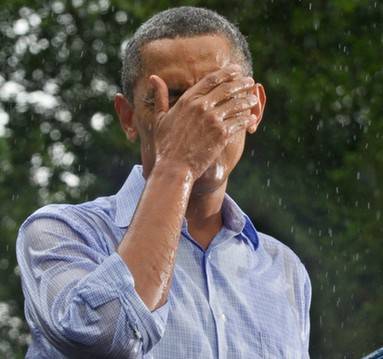國外總統(tǒng)競選期間,競爭對手之間都會互潑臟水,揭對方的短、爆對方的丑聞,并積極運用媒體平臺散播這些信息,以影響對手的支持率。這當中自然會有一部分宣傳內容是人工炮制、無中生有的。所以,國外媒體對這一類宣傳活動都叫shamcampaign。

Shampaign is a fake, insincere, or misleading campaign, particularly for political office or commercial gain.
Shampaign指虛假的、不誠懇的,或者有誤導性質的宣傳活動,尤其是以政界職位或商業(yè)利益為目的的宣傳活動,我們可稱之為“虛假宣傳”。
The word shampaign is a portmanteau of the words sham and campaign. An online dictionary defines the word sham as "something false or empty that is purported to be genuine" and "one who assumes a false character".
Shampaign一詞是sham和campaign兩個詞的合成形式。在線字典對sham一詞的解釋為“冒充真貨的贗品”和“假冒某個身份的人”。
Shampaigns have become increasingly popular and will continue to do so. As viral marketing becomes mainsteam, we will see more and more shampaigns as this is a technique that creates talk and can successfully carries consumers from one media to another, for example a television commercial to a website. (Source: Word Spy)
虛假宣傳越來越普遍,而且這個趨勢還將繼續(xù)。隨著病毒營銷策略成為主流,我們會看到更多的虛假宣傳,因為這種策略能夠制造話題然后成功地將消費者從一個媒體轉移到另一個媒體平臺,比如,從電視廣告轉移到某個網(wǎng)站。
相關閱讀
(中國日報網(wǎng)英語點津 Helen)
